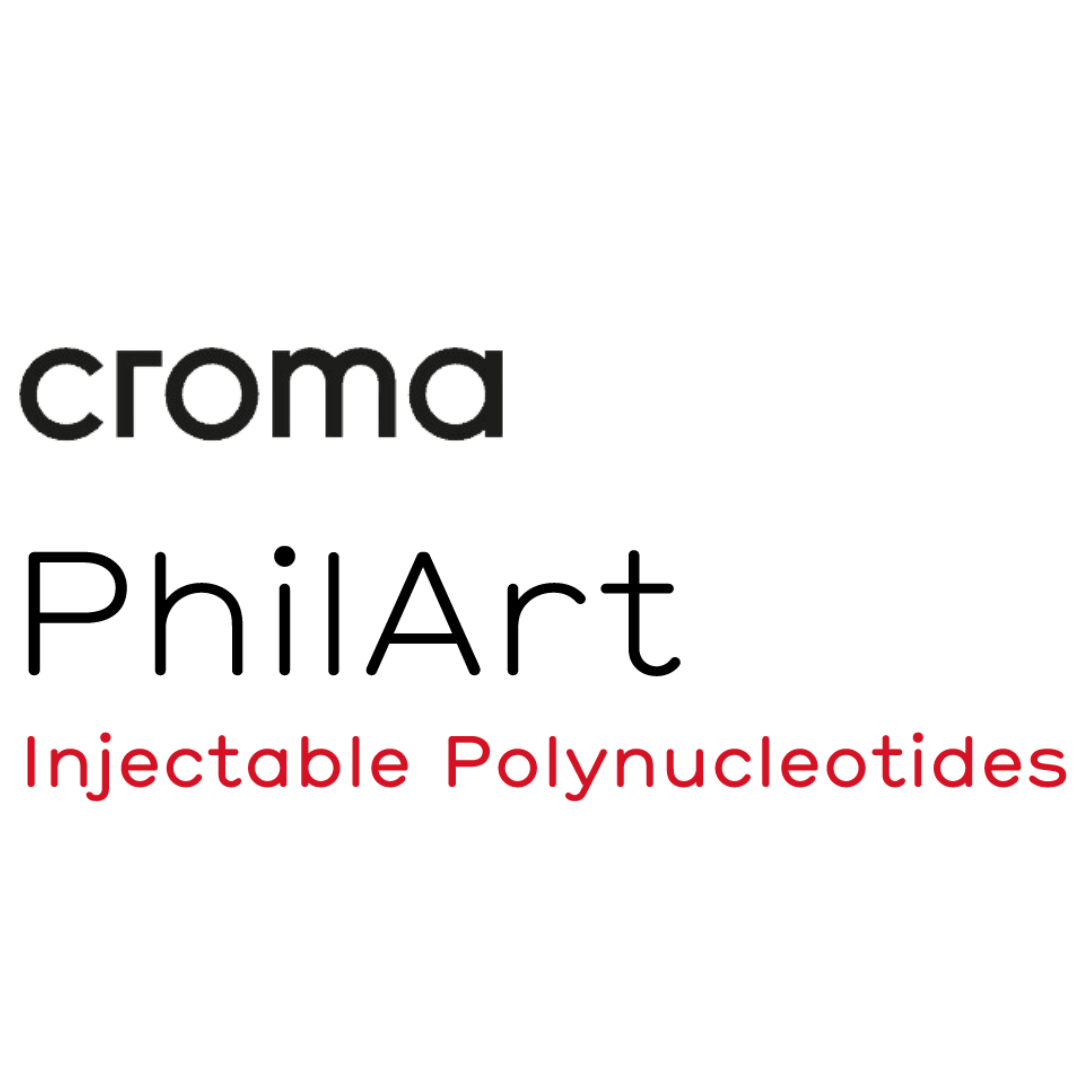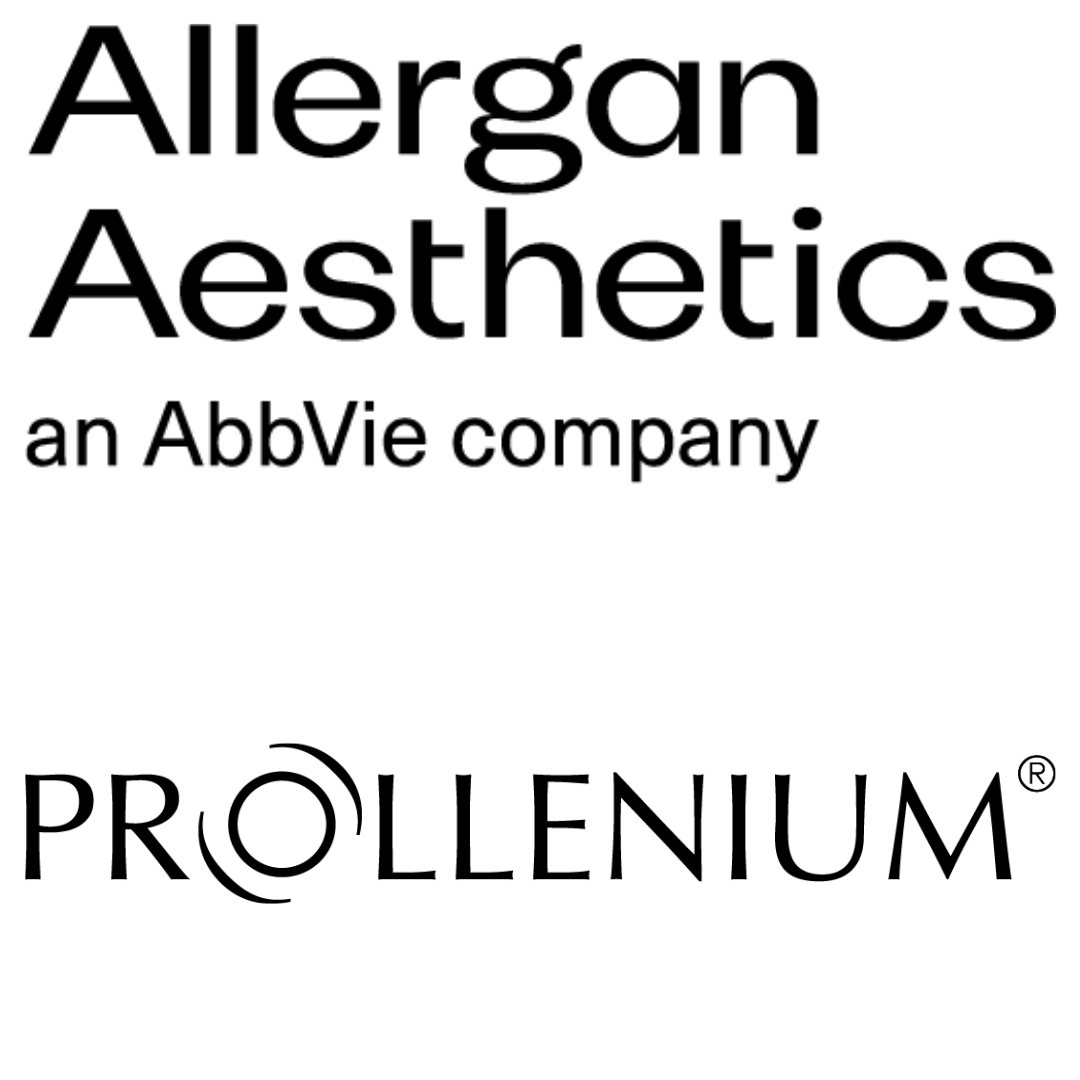The Ethics of Treating Younger Aesthetics Patients
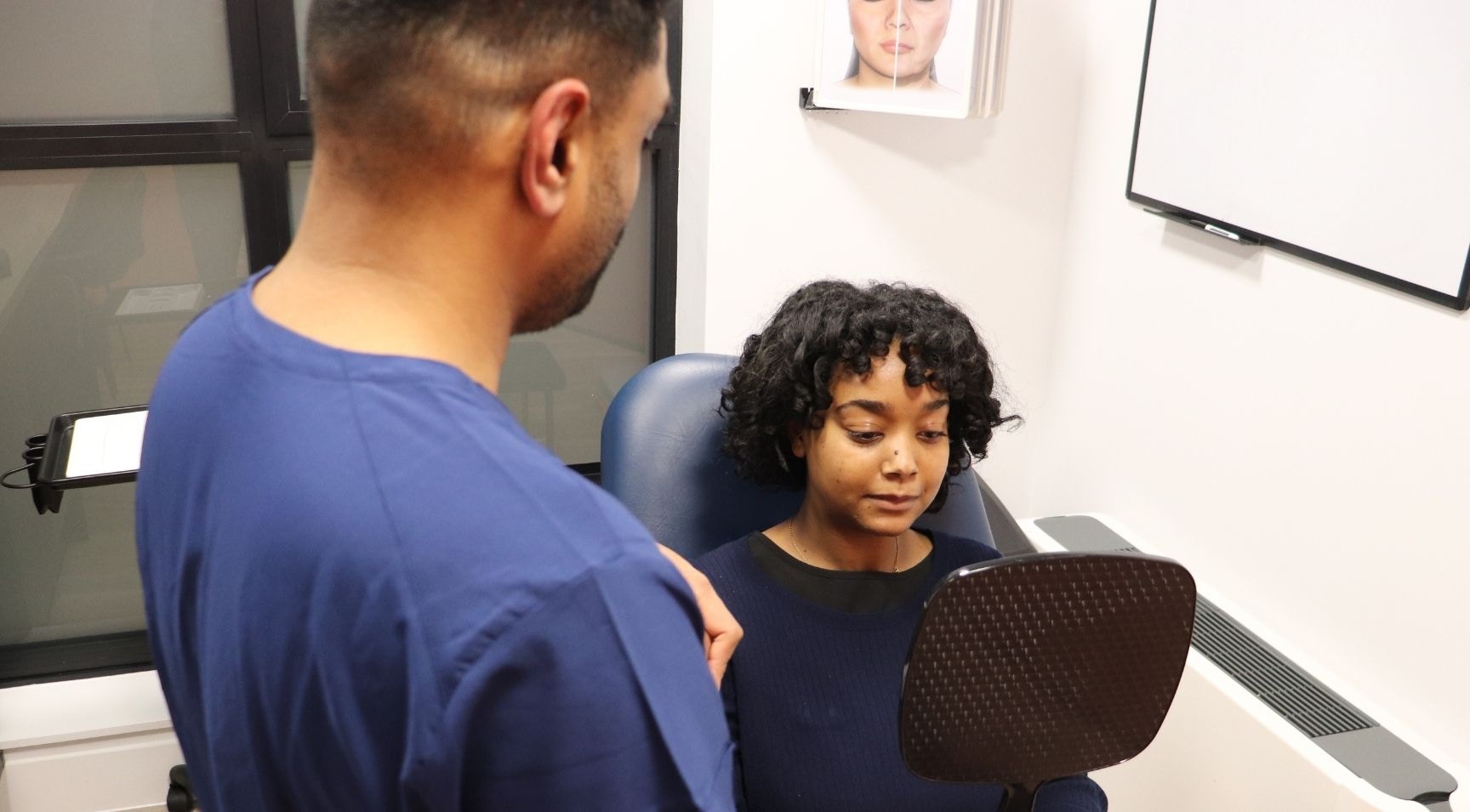
The ethics of treating younger aesthetics patients is a topic up for debate by medical professionals and the media. As the number of patients seeking aesthetics treatments rises, it’s fast becoming a polarising matter.
A recent article in the Daily Mail suggests Gen Z is “ageing quicker” than millennials and looking older.
The article quotes celebrity cosmetics doctor, Dr Rasha Rakhshani-Moghadam. She states “Overuse or unnecessary application of filler and toxins at a young age may affect the natural facial development, causing younger patients to look older than they are.”
Clinical trainer and aesthetics specialist, Dr Lindsay Jones explains the importance of ethical injecting at a younger age. She further addresses recent pop culture myths circulating the internet on the effects of aesthetics treatment on younger people.
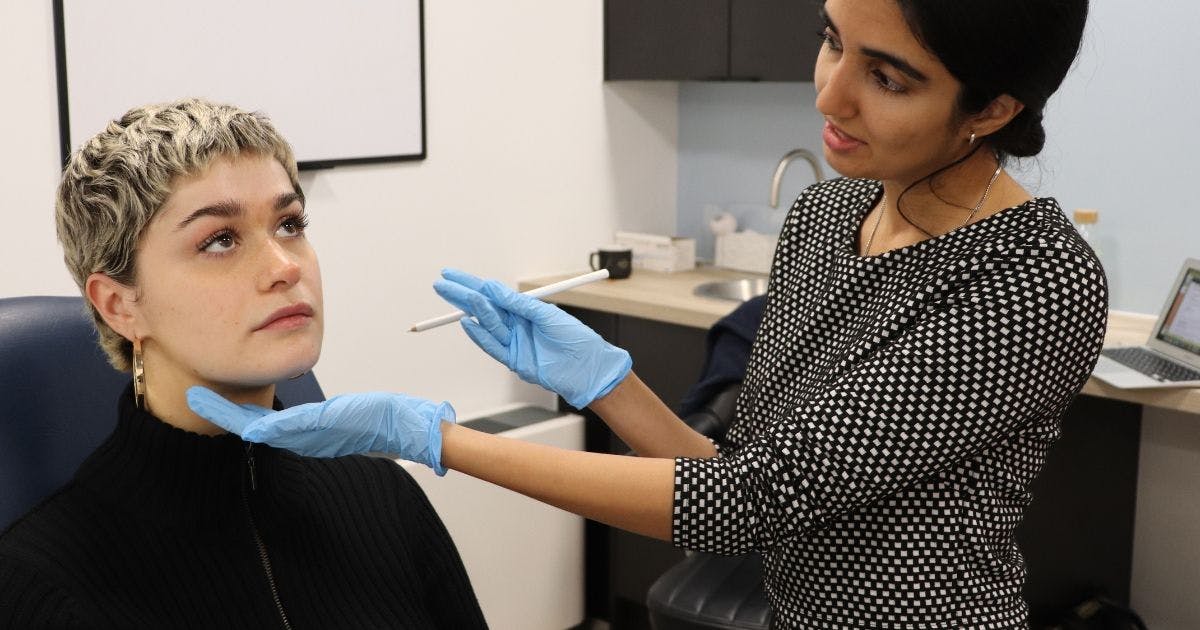
What is considered a “younger” aesthetics patient age-wise?
In October 2021, UK law changed banning anyone under the age of 18 from cosmetic injectable treatments. However, many clinics require patients to be at least 21 years old.
At The Academy Clinic, the minimum age requirement is 18 years for skin treatments and 21 years for injectables.
Dr Lindsay notes that, in her opinion, “Within aesthetics there’s no official definition for a ‘younger patient’. I would consider anyone under the age of 30 years old to be young.”
“Preventative” aesthetics treatments for younger patients
Dr Lindsay's advice for aesthetics practitioners is, “Unless a product has quality evidence that it prevents ageing, we shouldn’t be administering or marketing these treatments towards younger people.
“As medical professionals, it’s our job to practise evidence-based medicine. Reviewing the scientific literature for a product with an analytical mind is imperative.”
Fillers will also not prevent ageing. They simply may counteract it by addressing volume loss. There will also be a point where surgical interventions will produce better outcomes.
It has been suggested that use of botox can prevent the development of wrinkles later on in life. However, there are less invasive alternatives to prevent wrinkle formation and maintain skin health at the same time. The use of effective skincare (vitamin C, retinol and sunscreen) and skin treatments, compared to the use prescription only medicine with it’s potential complications.
A counter argument that has been suggested is that by inducing muscle weakness over a long period of time, there is reduced stimulation of skin to produce new skin, so in fact, botox over a long period of time could cause skin to look more aged.
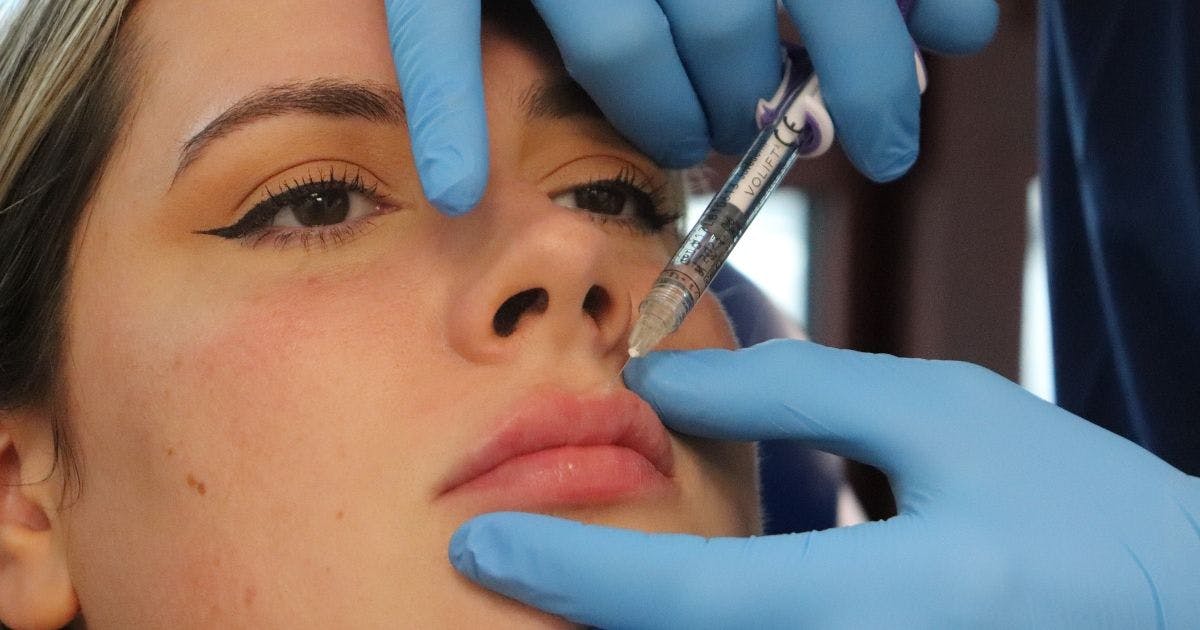
Treatments suitable for younger aesthetics patients
“It’s important to caveat any generalised treatment recommendations,” Dr Lindsay warns.
“Any treatment administered by medical practitioners should take place in the context of a full medical aesthetics consultation. Also, based on that patient’s individual needs rather than trends.”
Skin comes first
Dr Lindsay explains, “Generally, younger patients don’t require the typical “anti-ageing” approach of aesthetics treatments. The focus here would be on maintaining their appearance.
“I would encourage the year-round use of broad-spectrum sun protection factor (SPF) from a young age. This prevents free radical tissue damage and has scientific evidence behind it.
“As we live in the age of information, it may be tempting to try every new ingredient on the market. However, unless there is a specific skin concern there’s no need to purchase every skincare product.
“A simple consistent routine of cleanser, moisturiser and SPF should be sufficient for most younger patients. This is the time to get into good habits!”
Our Cosmetic Dermatology course teaches medical aesthetics practitioners about skincare ingredients. This allows you to make informed recommendations to patients based on their concerns. By understanding each ingredient, you’ll also have the freedom to discuss products from a range of brands - not just those you carry or are particularly familiar with.
Injectables for beautification, not rejuvenation
“When it comes to injectables, the focus at younger ages is usually on enhancing that patient’s individual beauty,” Dr Lindsay states.
“For dermal fillers, a ‘less is more’ approach can be taken. You wouldn’t approach male and female presenting patients in the same way, it’s the same for young and old patients too,” she notes.
A cosmetic doctor’s thoughts on “Baby Botox”
“‘Baby Botox’ is a trend where small doses of botulinum toxin are administered to prevent wrinkles from forming in the future.
“This approach has no scientific evidence to back claims that it prevents wrinkle formation, as it’s multifactorial”, Dr Lindsay highlights.
“This approach can actually age a young patient’s appearance through lack of expression. I wouldn’t recommend ‘baby botox’ to younger patients who don’t have demonstrable dynamic lines.
“Botox is a prescription-only medication with risks and side effects. Legally and ethically, it isn’t recommended for use in patients without an indication for treatment.”
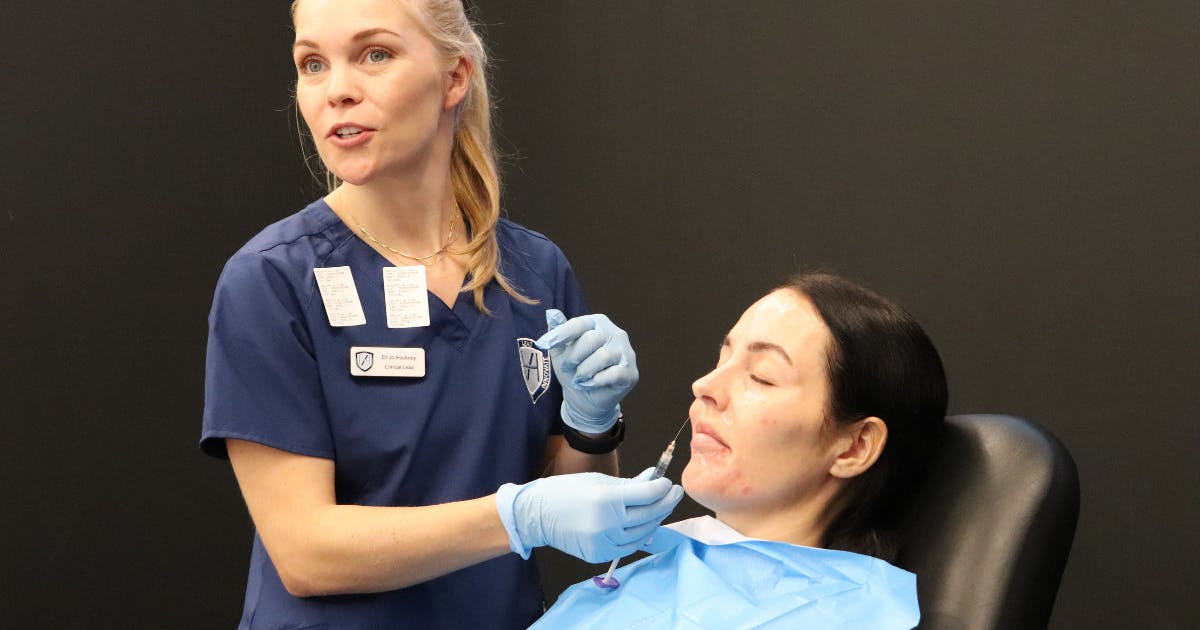
Turning away a patient for treatment
There are many factors to consider regarding patient suitability. Dr Lindsay spotlights three main situations where she would turn away a patient for treatment.
- Medical contraindications
- Unrealistic expectations of the treatment
- Demonstrated signs of body dysmorphic disorder (BDD).
She comments, “Particularly with younger patients, trying to elicit their motivation for treatment can give an insight into their mindset around their appearance.
“In the era of social media influencers, it’s important to establish intrinsic rather than extrinsic motivators for treatment.”
Common mistakes injectors make when treating younger patients
Dr Lindsay notes, “The biggest mistake I see new aesthetic practitioners make is being patient-led. Rather, injectors should be recommending or declining treatments in their position as an expert.”
“Patient education is a huge part of our job and communicating an appropriate treatment plan is a vital skill to learn.
“I find it useful to give the patient a mirror to gaze into as I discuss their face with them.
“As new injectors, we need to move past the imposter syndrome and communicate with patients what treatments are suitable for their individual concerns..”
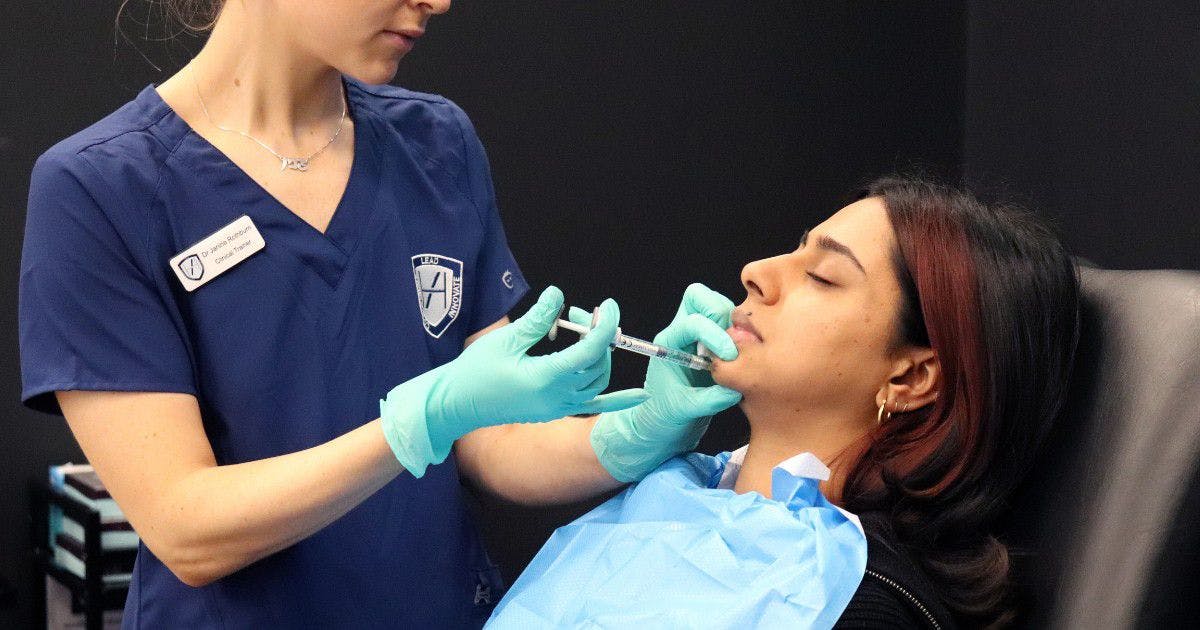
Hone your skills to be a safe and ethical aesthetics practitioner
Knowing when to treat, which treatments to offer and how to provide a thorough clinical consultation are the hallmarks of a safe and ethical injector.
At Harley Academy our entire ethos revolves around producing safe, ethical, effective and employable aesthetics practitioners.
As innovators of the Level 7 Diploma in Botox & Dermal Fillers, we pride ourselves on providing the gold standard in medical aesthetics training. Our teaching is tailored for doctors, dentists, nurses and clinical pharmacists.
Our Ofqual-regulated and JCCP-approved Level 7 is a Master’s level qualification that’ll develop your aesthetics craft. You’ll expand your understanding of anatomy, injecting techniques and discover the importance of consultations in aesthetic medicine.
As you treat your own patients in our real working aesthetics clinic, you’ll learn to recognise their concerns. This will enable you to offer an ethical approach that puts patient safety and suitability at the forefront of your practice. In addition to simply being the right thing to do, this strategy can also generate fantastic word-of-mouth patient recommendations.
For a more holistic approach, consider our Combined Level 7. Pairing our industry-leading Level 7 Diploma in Botox & Dermal Fillers and Cosmetic Dermatology course, you’ll broaden your skills and become an all-round aesthetics practitioner.
Explore the pathway that’s right for you by booking a call with our Course Advisors. They’ll provide free, personalised advice and explain your best options for becoming #HarleyTrained.
All information correct at the time of publication










